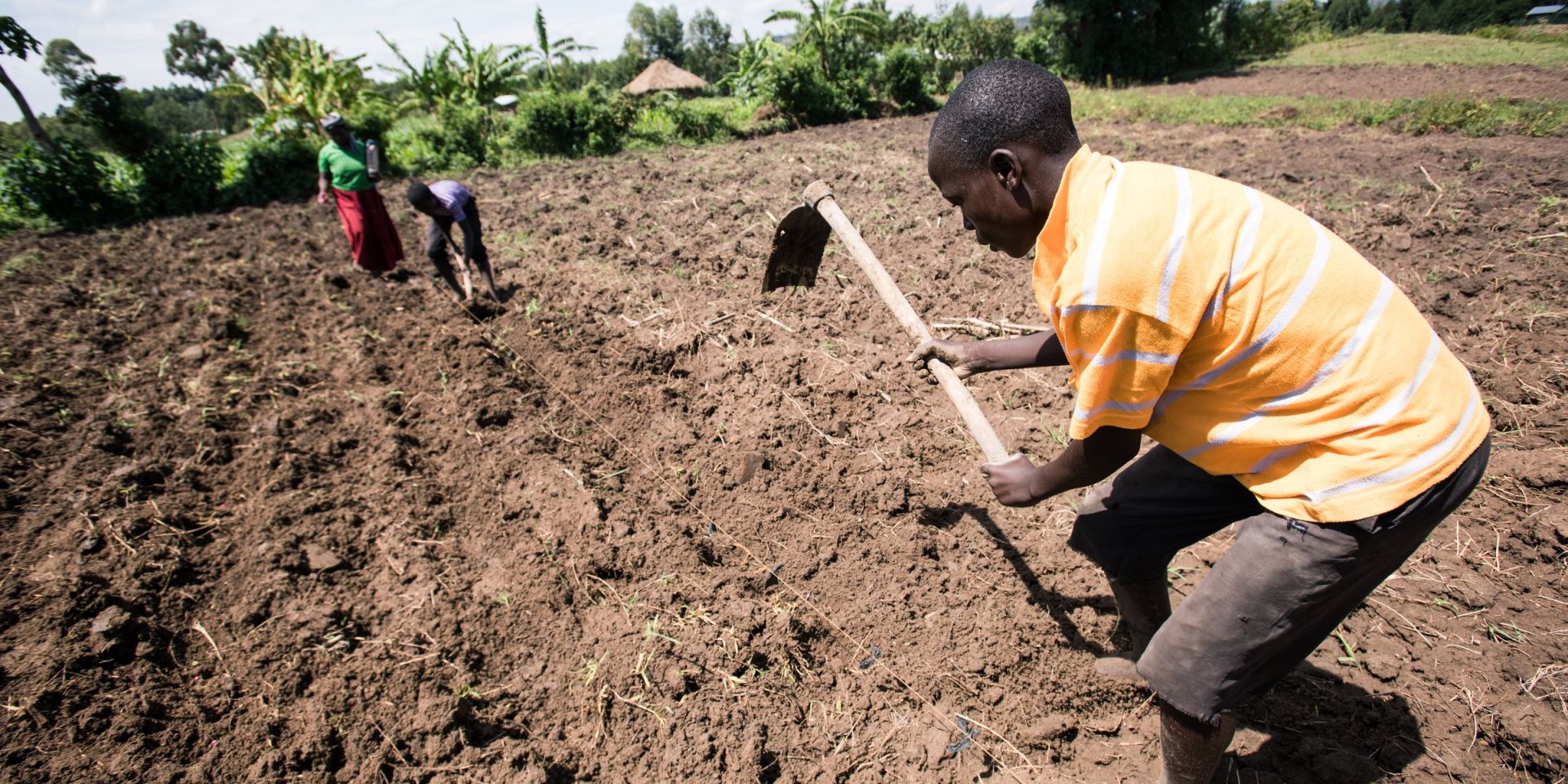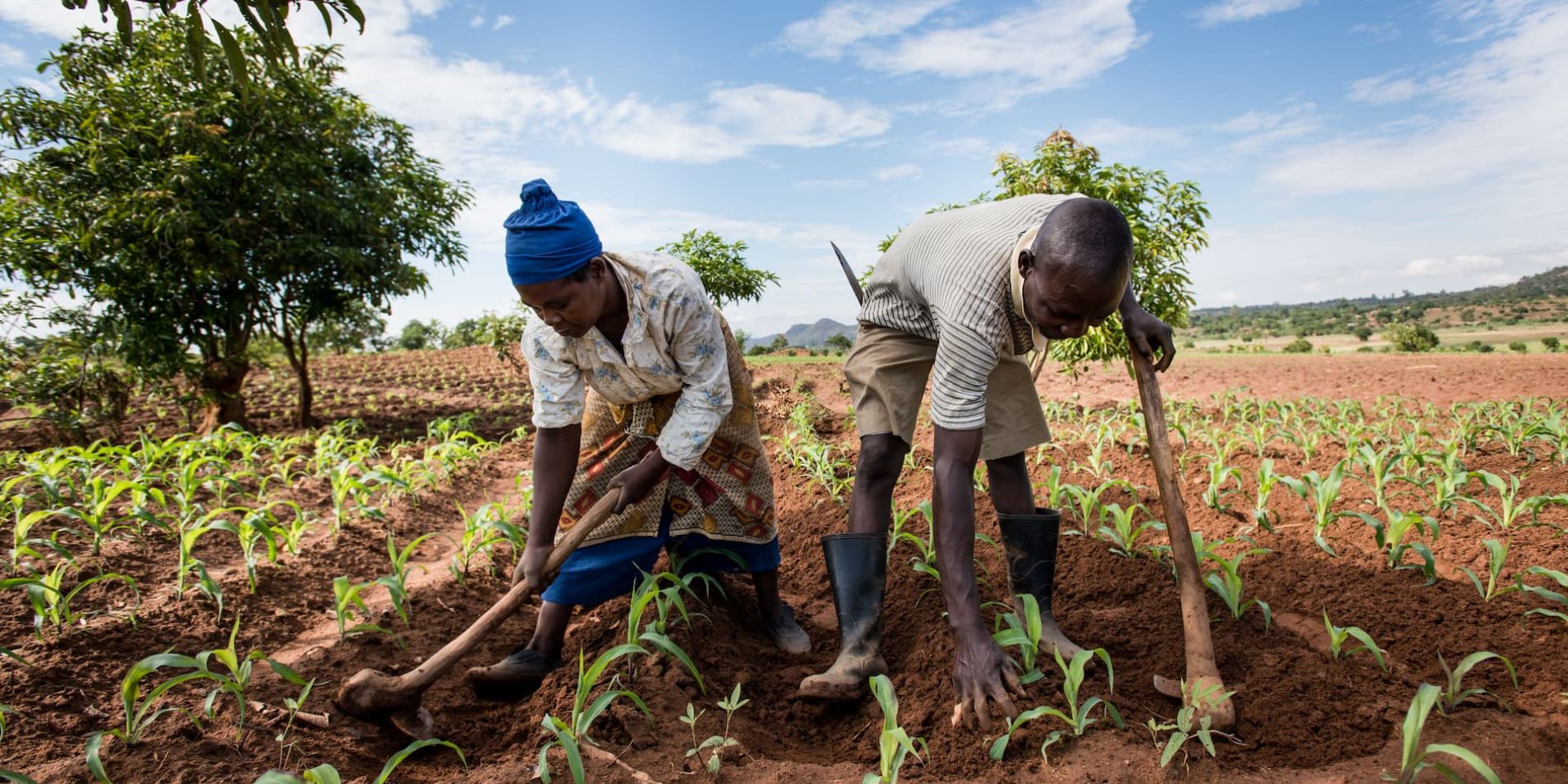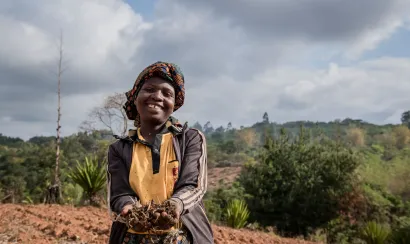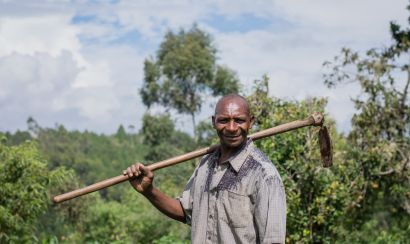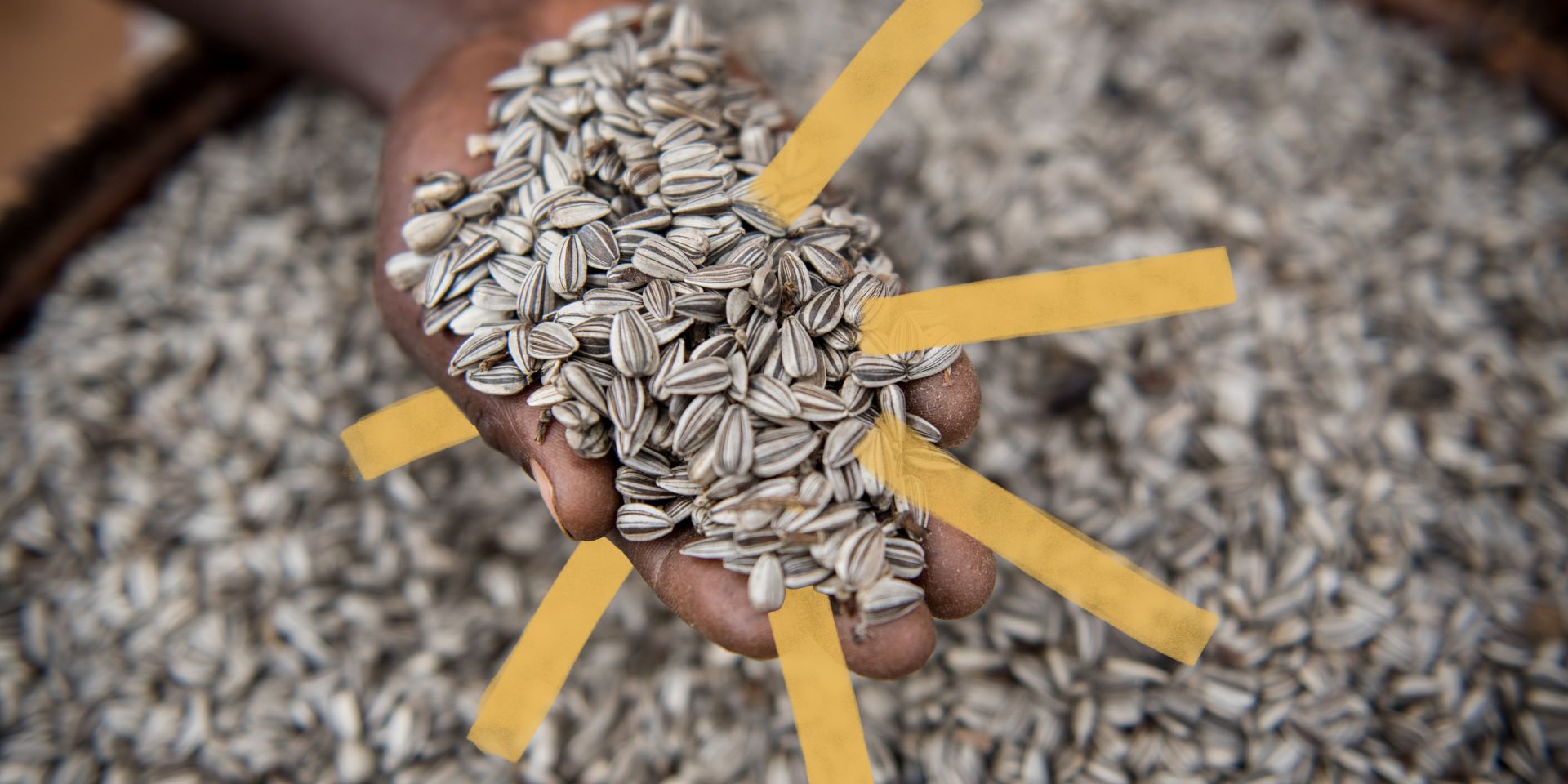What Climate Change Means for Agriculture in Africa
Upendo Malata eyes the dark gray clouds gathering overhead with a feeling of anticipation. Rain is coming, and her one-acre farm in Magulilwa, Tanzania, desperately needs it. The entire previous month has been dry -- a strange occurrence during the heart of the rainy season -- but in just the past few days, the skies have started opening up again. Upendo’s maize crops are still maturing, and they may be able to escape permanent damage, as long as the rains continue through the rest of the next month.
“Two or three weeks later, and it would have been worse,” says Upendo, a single mother who supports a family of five with the income from her small farm. “Now, we just pray that the harvest will be enough.”
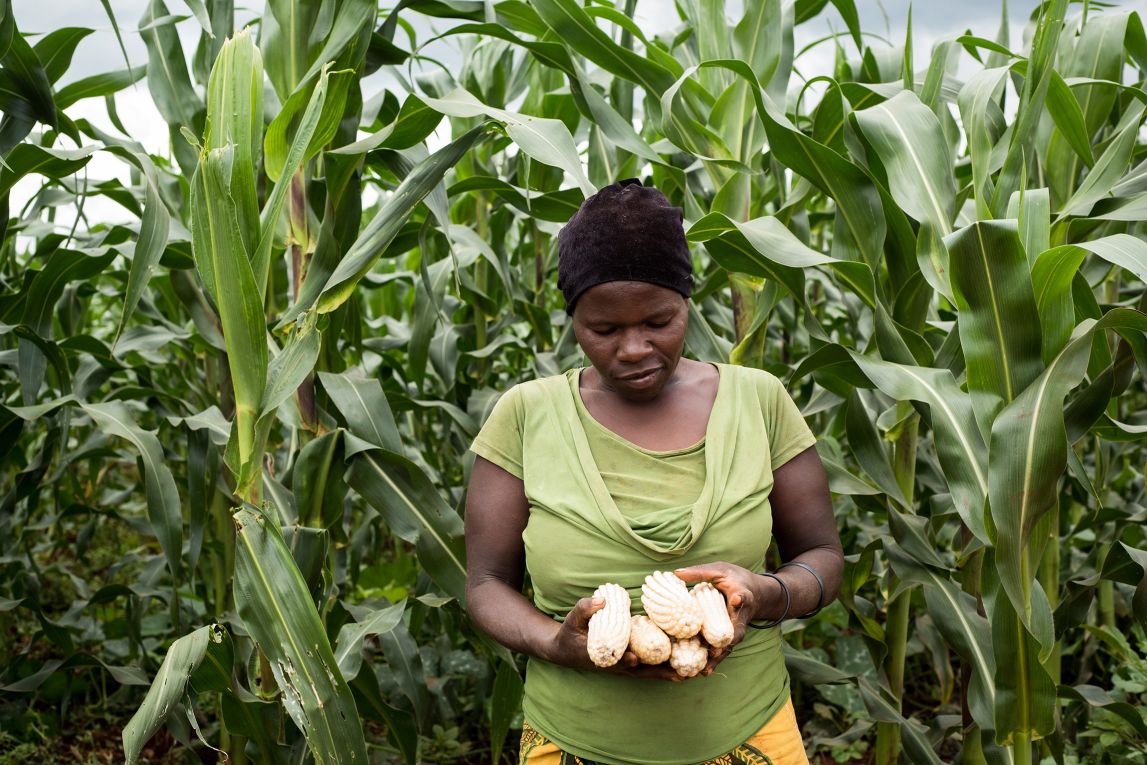
Uncertainty is a feeling that Upendo has gotten used to, because it’s the third year in a row that weather problems have threatened her family’s livelihood. Last year, her harvest was smaller than normal because the rains arrived later than expected. The year before, powerful winds and hail from a sudden storm destroyed much of her crop, forcing the family to ration food for months until the next harvest.
“My whole life growing up, the rains always came at a certain time,” Upendo remembers. “The weather is more difficult to predict now than before.”
Agriculture’s Links With Climate
Agriculture has always been deeply dependent on the weather, with farmers needing a steady mixture of sun, warmth, and rains in order to reliably produce the food that all of humanity depends on for survival. Now, these once predictable growing cycles are at risk from climate change, and smallholders like Upendo are on the front lines.
About 80 percent of the world’s food is produced by family farms, according to the United Nations, so climate change’s effect on agriculture could have repercussions that reach far beyond individual farmers and their families. Unless humans take significant steps to reverse course and cut greenhouse gas emissions, the situation may continue to intensify. No one knows for sure what impact this will have on future food supplies, but models by the International Food Policy Research Institute estimate that global maize production could shrink 24 percent by 2050.
Challenges African Farmers Face
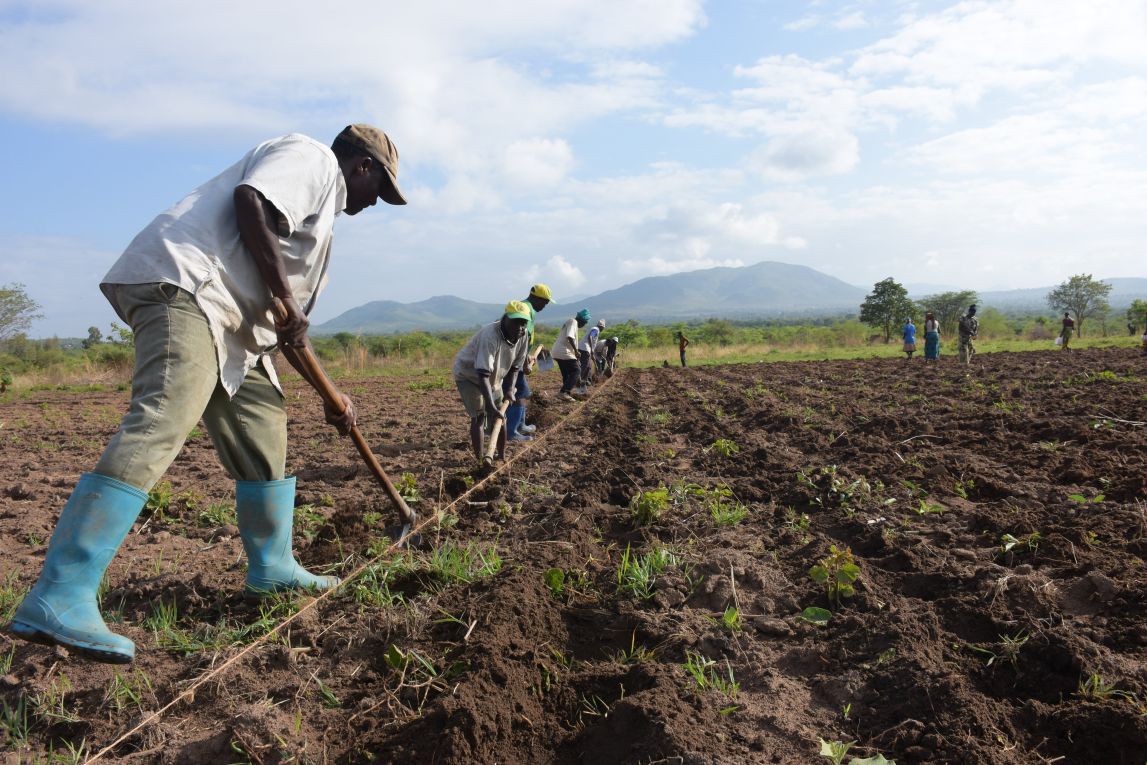
Farmers in Sub-Saharan Africa are particularly vulnerable, in part because they mostly rely on rain-fed agriculture instead of irrigating. In central Tanzania, the rainy season typically lasts from November through April, after which the weather becomes too dry to support growing crops. Every year, farmers need to produce enough food from their single annual harvest to feed their families until the next season. In good years, farmers have enough grain left over to sell as income, but when crops fail, families often experience an annual “hunger season,” a time of meal skipping and substitution until the next harvest.
Every year has its own challenges, but thanks to climate change, farmers are now facing greater difficulties from three main threats:
- Extreme weather: Volatile weather is a hallmark of climate change, and it can manifest in any number of ways -- droughts, floods, severe storms, heat waves, cold snaps, frosts. Extreme weather events are expected to increase in frequency as the Earth’s atmosphere warms. Farmers in Eastern and Southern Africa are already experiencing the effects -- in 2016, the region saw the most severe drought in decades, which dramatically reduced harvests and left many families hungry.
- Pests and diseases: Changes in temperatures and moisture conditions can allow crop diseases and pests to migrate into new areas. Recently, Sub-Saharan Africa has witnessed the spread of fall armyworms, an invasive caterpillar that can devastate maize yields when left unchecked. We still don’t know for sure what caused this outbreak, but some scientists have linked its spread with climate change.
- Hotter temperatures long term: Average global temperatures are expected to rise over the coming decades, which could lead to desertification and smaller harvests in Sub-Saharan Africa. If global temperatures increase by 4 degrees Celsius by the year 2100, maize yields in some African countries would probably decline by more than 20 percent, according to a study published last year.
What Comes Next
Increased access to better farm inputs and agricultural training can help improve crop yields, and sometimes temper the effects of extreme weather. At One Acre Fund, we’re working on a number of efforts to help farmers mitigate and adapt to climate change. This includes training on sustainable farming methods that can benefit soils, providing farmers with crop insurance as a buffer against weather volatility, and distributing millions of trees, which can help capture carbon, improve soils, and prevent erosion and water run-off.
While the future may look uncertain, it’s not too late to reverse course. Governments, institutions, and private sector groups need to include support for smallholders in their wider efforts to combat climate change. Enabling farmers to access the financing, tools, and training they need will help ensure that millions of rural families can sustainably harvest crops through the years to come.
